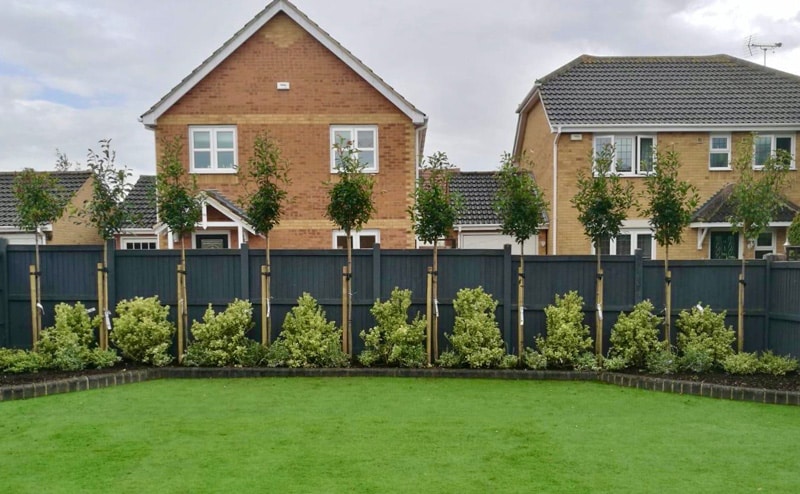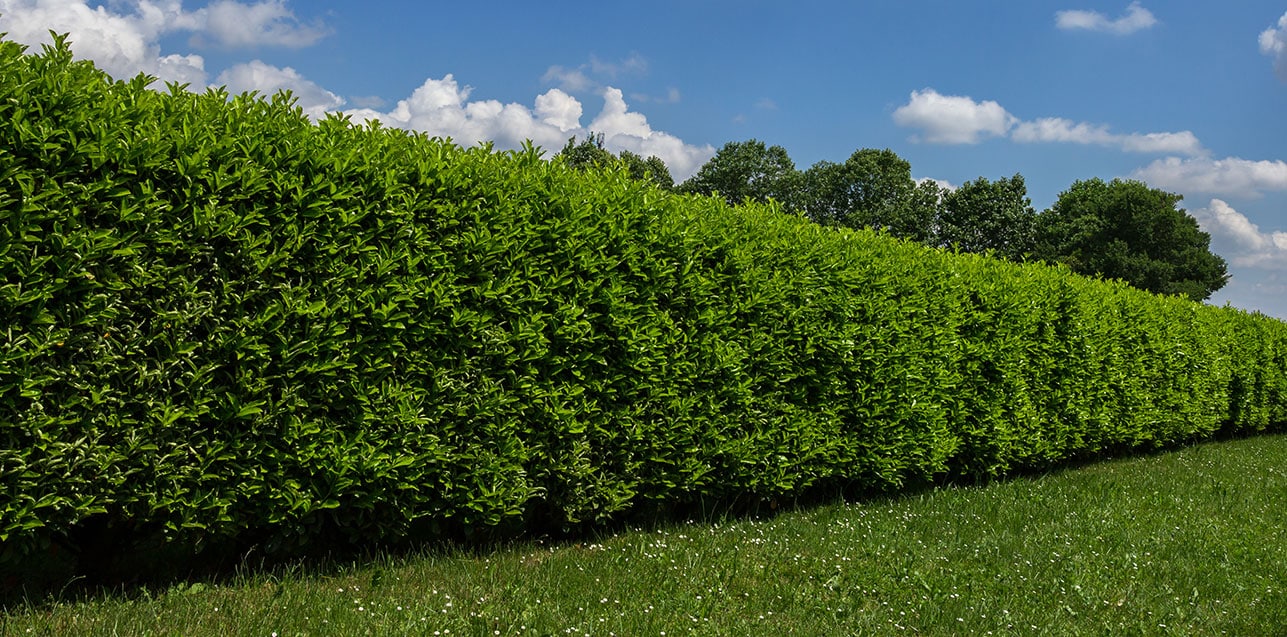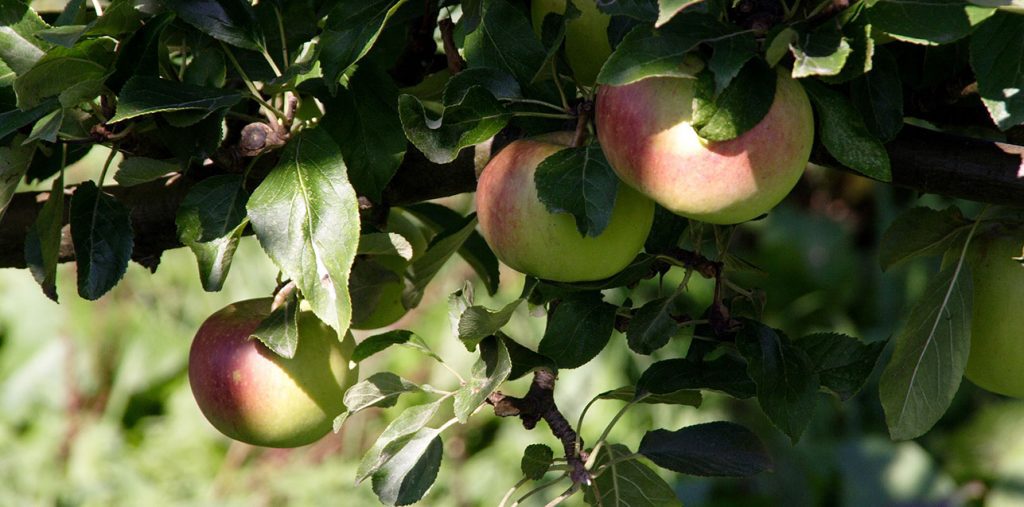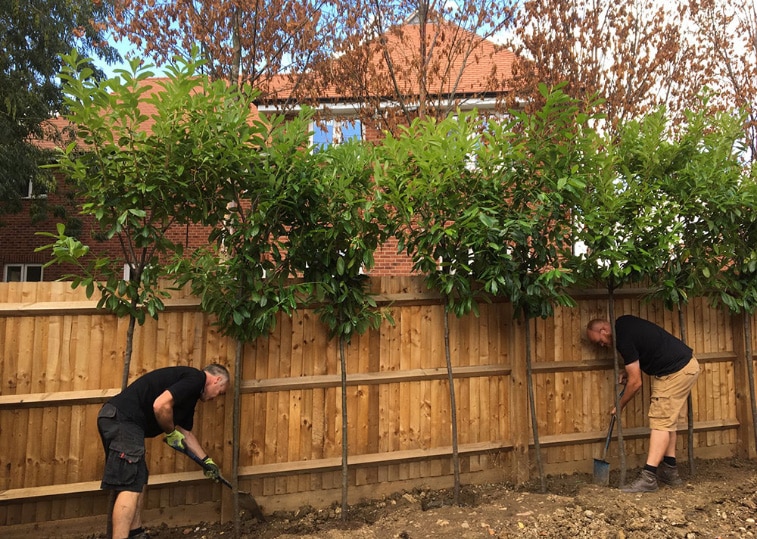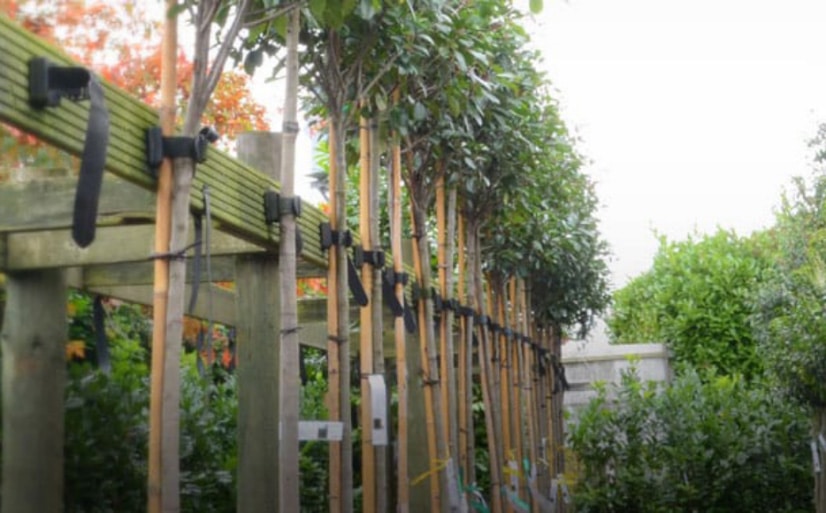How to reduce noise pollution with trees is a question we are often asked, especially from people living near busy roads or noisy neighbours. The good news? Trees and hedges can absolutely help.
While trees are commonly used for privacy or screening unwanted views, they can also soften and block unwanted sound. Let’s look at how trees can reduce noise in your garden and which varieties work best.
Out of Sight, Out of Mind
Did you know that visual barriers can influence how we perceive sound? Studies show that when noise sources are hidden, we often find the sound less intrusive. That’s one simple way to understand how to reduce noise pollution with trees.
By planting dense hedges or trees, you create both a visual and acoustic barrier. The thicker the foliage, the more effective it will be. Evergreen varieties offer year-round protection, making them an ideal solution.
For compact gardens, try a Box replacement like Euonymus ‘Jean Hugues’. It has small, tightly packed leaves that form a tidy, dense screen. If you need something fast-growing, Leylandii is a great choice. It quickly forms a solid wall of soft, evergreen foliage, helping reduce both noise and visual clutter.
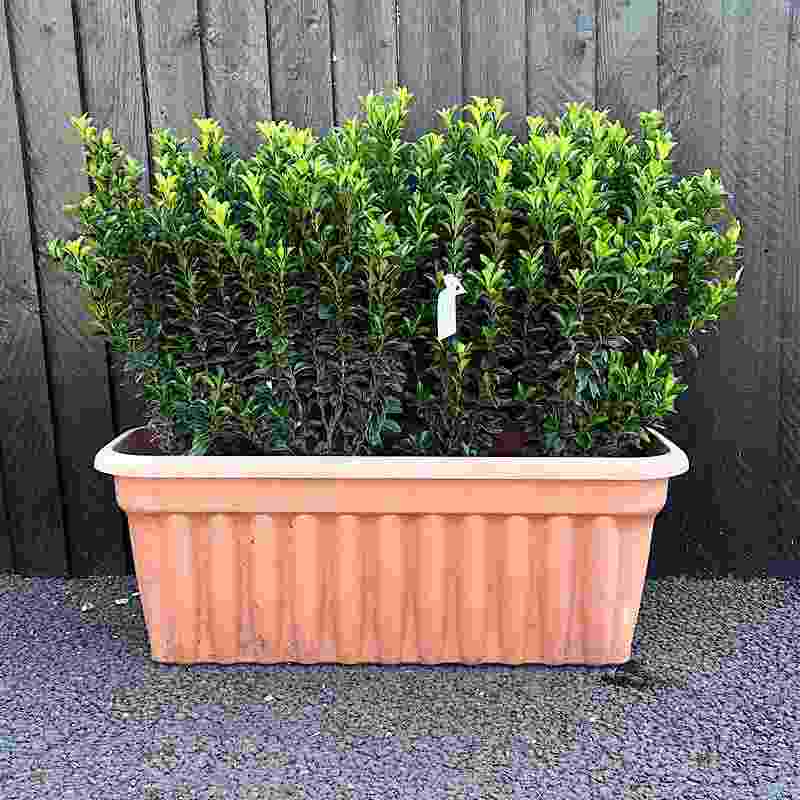
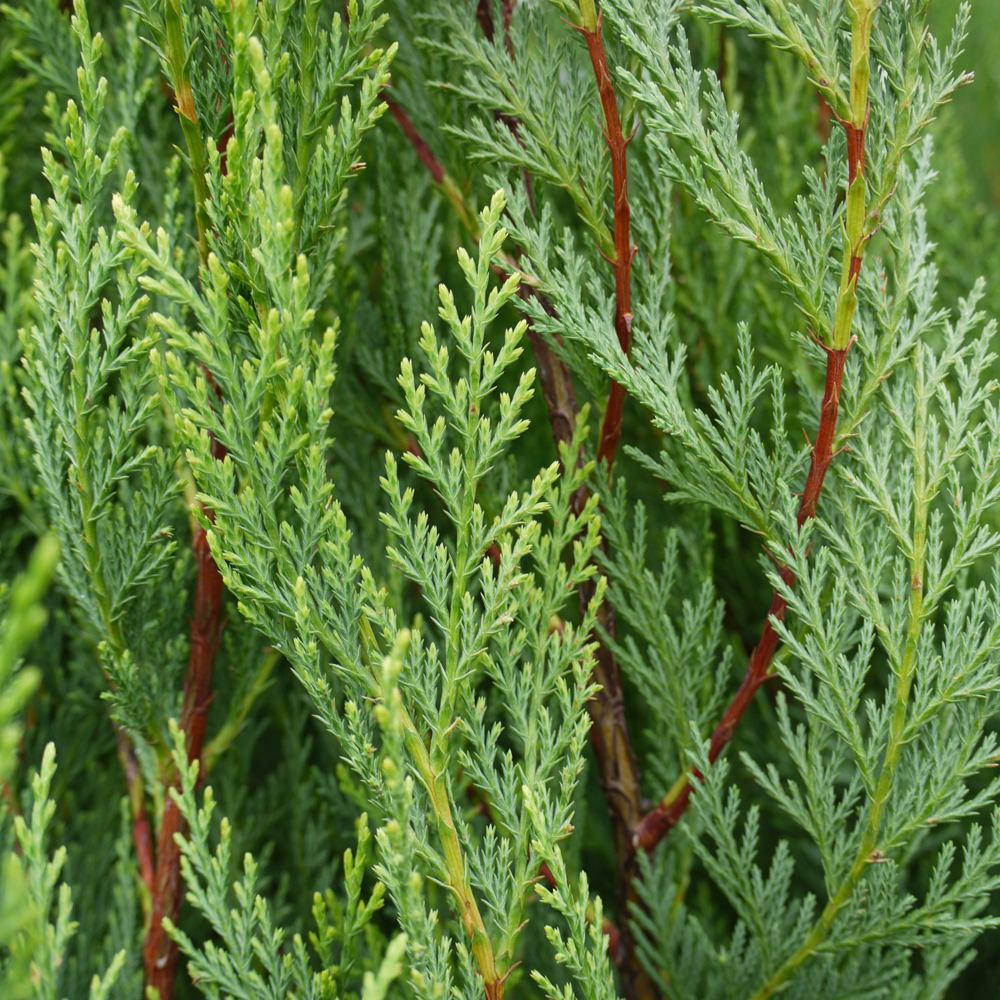
Masking Noise with Nature
Another clever way to reduce noise pollution is by adding soothing, natural sounds to your space. For example, the gentle rustling of bamboo can help mask traffic noise or chatter from nearby gardens. A Bamboo hedge grows tall, fast, and creates a calming sound in the breeze.
Birdsong is another natural sound that can help soften background noise. Most hedges attract birds by offering shelter and nesting sites. Want to bring in more wildlife? Planting a native hedge is one of the best ways to support birds and enjoy the added benefit of natural sound masking.
Solid Barriers Work Best
To understand how to reduce noise pollution with trees, it helps to know how sound travels. Sound moves through the air, so the most effective way to block it is with a solid barrier that limits airflow between you and the source.
Choose plants that grow densely from ground level upwards to minimise any spaces for sound to travel through. The goal is to create a wall of foliage with no gaps. Leylandii works especially well for this. Though it can grow vigorously, it responds well to regular trimming to keep it neat and tidy. Remember taller is better, but even short hedges can work if space allows for multiple parallel rows of hedging!
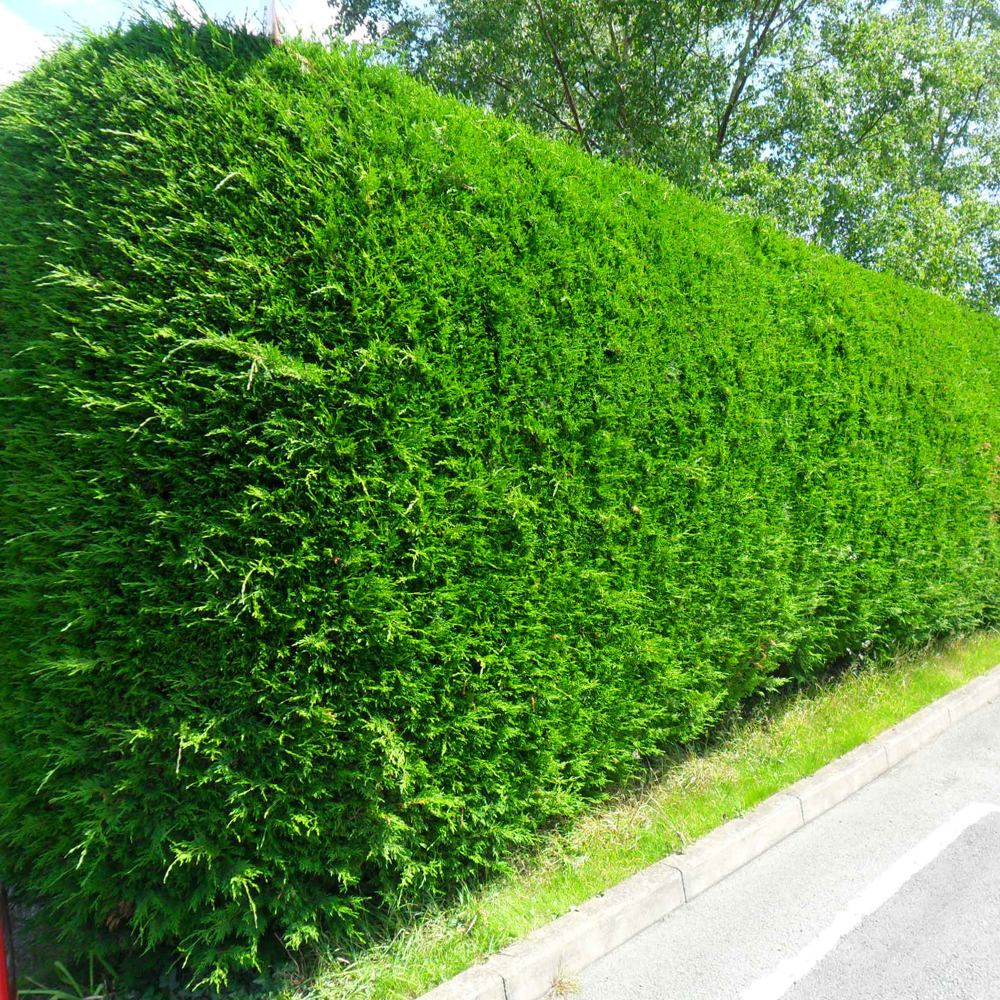
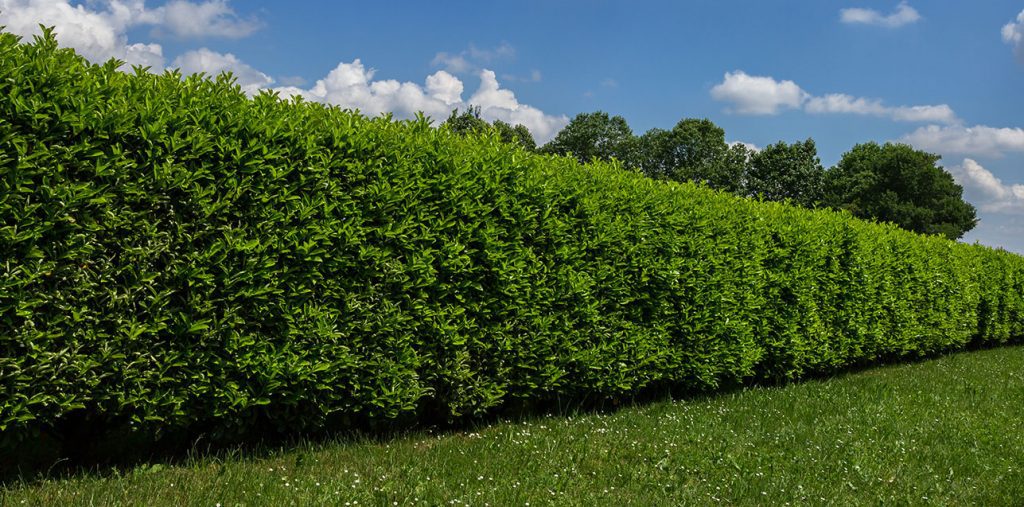
The Ultimate Garden Sound Barrier
Combining a solid structure, like a fence or wall, gives the best results. You create a strong base and add height without breaching planning regulations. You can achieve this effect with standard trees, these trees have clear stems (typically around 1.8m tall), with dense foliage forming above fence height.
This approach is ideal when you want a leafy screen without taking up too much space at ground level. For evergreen coverage, Cherry laurel and Photinia ‘Red Robin’ are excellent choices. Both offer rich foliage and year-round screening.
Trees and hedges can be powerful tools for managing garden noise. Whether you’re masking traffic, reducing sound from nearby properties, or simply creating a calmer atmosphere, the right planting can make a huge difference.
We hope this guide has helped explain how to reduce noise pollution with trees. If you’d like tailored advice for your garden, feel free to contact us or visit the nursery. We’re always happy to help!
Read more from King & Co:
2. Best Trees for Privacy: Before and after planting!
3. 10 Trees for Small Gardens!
4. Tree Planting Kits: Give your newly planted tree the best start!5. How to Water Newly Planted Trees

